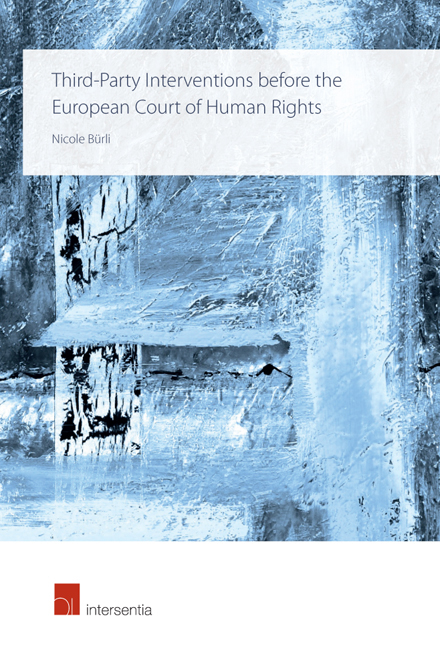
- Cited by 7
-
Cited byCrossref Citations
This Book has been cited by the following publications. This list is generated based on data provided by Crossref.
Read, Katherine and Griffiths, Laura 2018. Current Awareness. Legal Information Management, Vol. 18, Issue. 1, p. 65.
Pastor Vilanova, Pere 2019. Judicial Power in a Globalized World. p. 377.
ЛЕШЕНЮК, О. Н. 2021. Интеграционная организация как форма международного сотрудничества в целях реализации повестки 2030: теоретико-функциональные аспекты. Актуальные проблемы международных отношений и глобального развития, p. 227.
BAYTEMİR KONTACI, Burcu 2021. AVRUPA KONSEYİ İNSAN HAKLARI KOMİSERİ’NİN ÜYE DEVLETLERİN CEZA ve CEZA MUHAKEMESİ HUKUKUNA ETKİSİ. Ankara Hacı Bayram Veli Üniversitesi Hukuk Fakültesi Dergisi, Vol. 25, Issue. 2, p. 905.
Lanovoy, Vladyslav 2022. The Environment Through the Lens of International Courts and Tribunals. p. 415.
Dzehtsiarou, Kanstantsin 2023. Conversations with friends: ‘friends of the Court’ interventions of the state parties to the European Convention on Human Rights. Legal Studies, Vol. 43, Issue. 3, p. 381.
Takata, Hinako 2023. Separation of powers in a globalized democratic society: Theorizing the human rights treaty organs’ interactions with various state organs. Global Constitutionalism, p. 1.
- Publisher:
- Intersentia
- Online publication date:
- September 2018
- Print publication year:
- 2017
- Online ISBN:
- 9781780685939
- Subjects:
- Law, Human Rights




